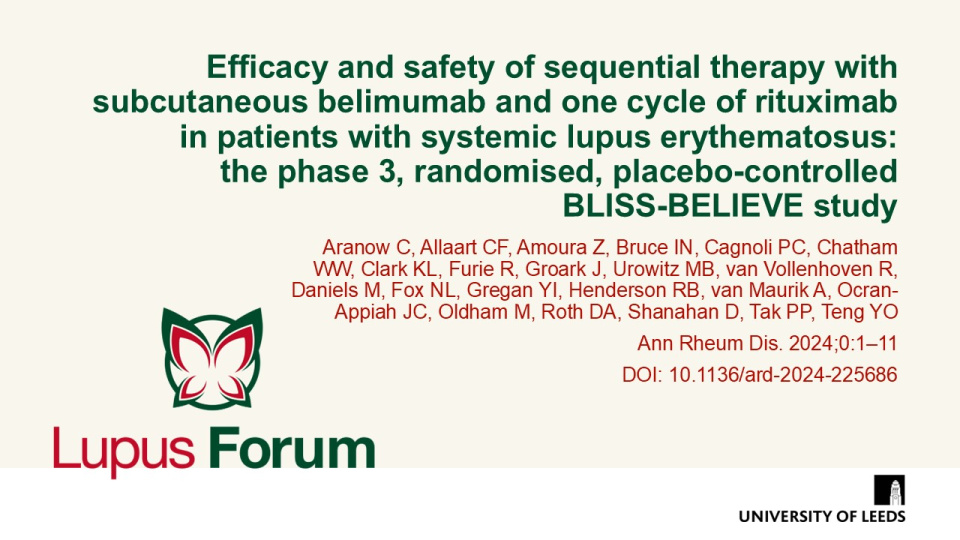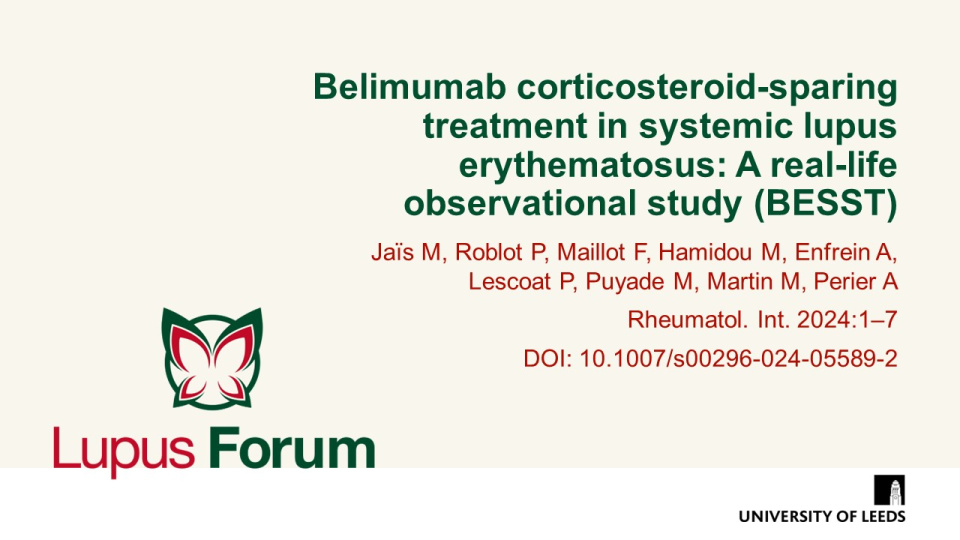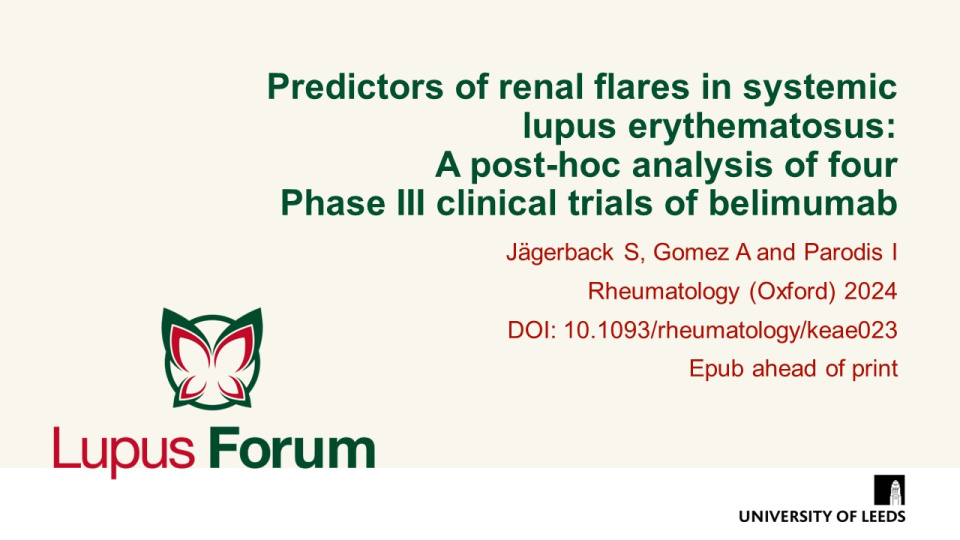Publications
Find coverage of the latest original articles on Lupus, focusing on those with data on therapeutic interventions and those that have clinical impact.
Efficacy and safety of sequential therapy with subcutaneous belimumab and one cycle of rituximab in patients with systemic lupus erythematosus: the phase 3, randomised, placebo-controlled BLISS-BELIEVE study
Ann Rheum Dis 2024;0:1–11 DOI 10.1136/ard-2024-225686.
Aranow et al. evaluated the efficacy and safety of combining subcutaneous belimumab with one cycle of rituximab in SLE. Sequential therapy did not show a statistically significant improvement in disease control over belimumab monotherapy, but did achieve nominally better reductions in disease activity markers.
Keywords:
Combination of anti-SSA/Ro60 and anti-dsDNA serotype is predictive of belimumab renal response in patients with lupus nephritis
Lupus Sci Med. 2024 May 28;11(1) doi: 10.1136/lupus-2024-001156
The combination of anti-dsDNA and anti-SSA/Ro60 serotype may help to foretell the patient’s renal response to belimumab. Investigators here aimed to explore the effectiveness of belimumab on active LN, exploring predictors, including serological biomarkers, of renal response to belimumab in a real-world setting.
Keywords:
Belimumab Corticosteroid‑Sparing Treatment in Systemic Lupus Erythematosus: a Real‑Life Observational Study (BESST)
Rheumatol. Int. 2024 Apr 30:1–7 DOI: 10.1007/s00296-024-05589-2 https://pubmed.ncbi.nlm.nih.gov/38687385/
Belimumab confers an early and sustained corticosteroid-sparing effect after 3 months of treatment in SLE patients. This was demonstrated by a significant prednisone dose reduction that continued through months 6 and 12, and was sustained until month 24.
Predictors of Renal Flares in Systemic Lupus Erythematosus: A Post-hoc Analysis of Four Phase III Clinical Trials of Belimumab
Rheumatology (Oxford) 2024 DOI: 10.1093/rheumatology/keae023 Epub ahead of print
High baseline proteinuria levels, hypoalbuminaemia, and C3 consumption were associated with
renal flare development. Renal flares remain common in patients with SLE, however causative factors are still largely unknown. Jagerback, et al. conducted a post-hoc analysis of pooled BLISS trial data to identify predictors of renal flares.





